During winters, wearing warm clothes sometimes is not enough, one needs to eat foods that keep them warm from within. Therefore, here are some spices and other foods, as recommended by experts, that will keep you warm this winter, prevent common health conditions as well as provide nutrition to the body and maintain health.
Jaggery
Jaggery is considered to be highly nutritious and perhaps the best replacement for refined sugar. It is rich in protein, potassium, good fat, phosphorus, iron, vitamin-B, calcium, copper and zinc. Dr. Sangeeta Malu, an Indore-based nutritionist says that the use of jaggery in place of white sugar is very beneficial for health. Eating jaggery regularly enhances metabolism and keeps weight under control. It also helps keep the body warm naturally during winters and improves immunity, thus preventing seasonal cols and cougs.

Sesame
Sesame seeds are hot in nature, which is why it is used in small quantities only. Essential nutrients like copper, manganese, calcium, phosphorus, magnesium, iron, zinc, vitamin B1, selenium and dietary fiber are found in it. Also, an antioxidant named Sesamin is found in sesame, which prevents cancer cells from growing. Apart from keeping the body warm, sesame seeds help in controlling the blood levels in the body as well as keeping the hair and skin healthy. The proteins in it provide energy and improve metabolic health as well.
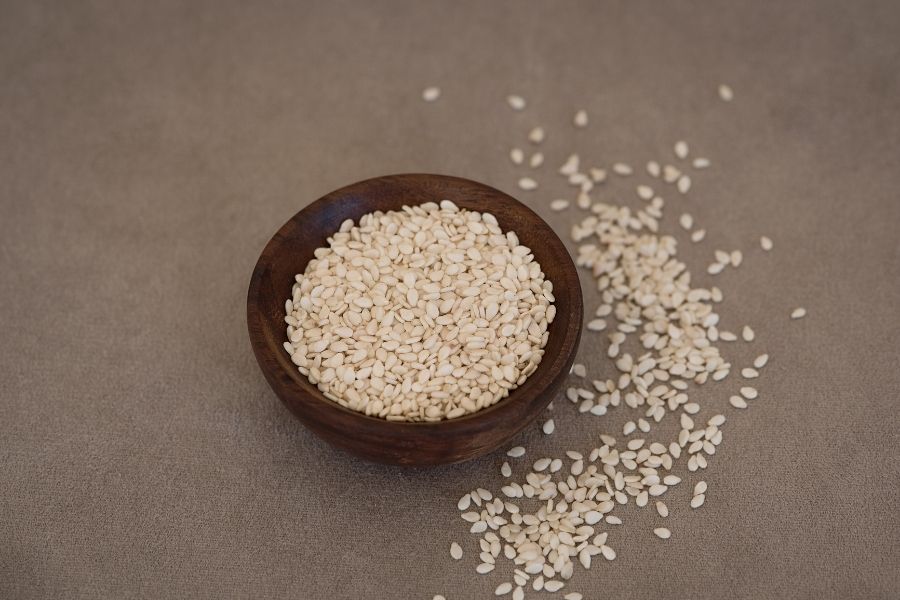
Ginger
Not just for enhancing the flavours of tea and food, ginger is used for its medicinal properties too. Considered a herb in Ayurveda, ginger has a thermogenic effect on the body, which makes the body feel warm from inside. Besides this, it has anti-fungal, anti-inflammatory, antiseptic, antibiotic and antiviral properties, which protect against seasonal infections and diseases. Minerals and nutrients like vitamin A, vitamin C, vitamin E, B complex, magnesium, phosphorus, silicon, sodium, iron, zinc, calcium, beta-carotene are also found in it. Ginger also enhances the immunity of the body and helps fight many diseases.
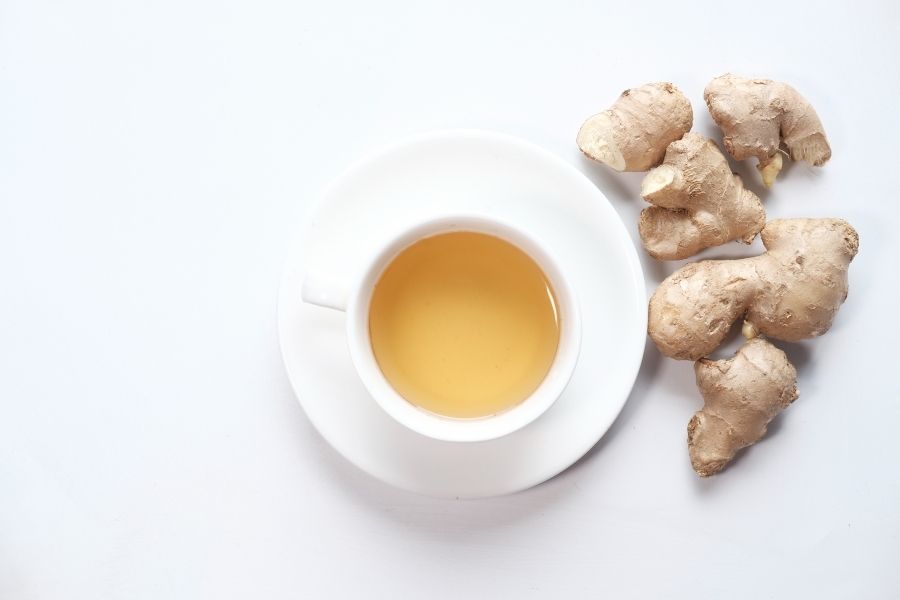
Almond and Walnut
Amongst dry fruits, both almonds and walnut are warm in nature. A Delhi-based nutritionist, Divya Sharma says that during the winter season, consuming walnuts and almonds in the appropriate quantity immensely benefits health. Almonds contain monounsaturated fats, omega 3 fatty acids, fiber, protein, folic acid, vitamin E, phosphorus and antioxidants etc. which are good for overall health. Also, soaked almonds help in maintaining a healthy heart and getting rid of bad cholesterol.
At the same time, walnuts are rich in protein, fat, fiber, carbohydrates, calcium, potassium, iron, copper, omega-3 fatty acids, monounsaturated fatty acids, phosphorus, selenium, and zinc, which can help protect the body from many health problems. She says that it is beneficial to eat 4-5 almonds and two walnuts daily, even in the winter season.
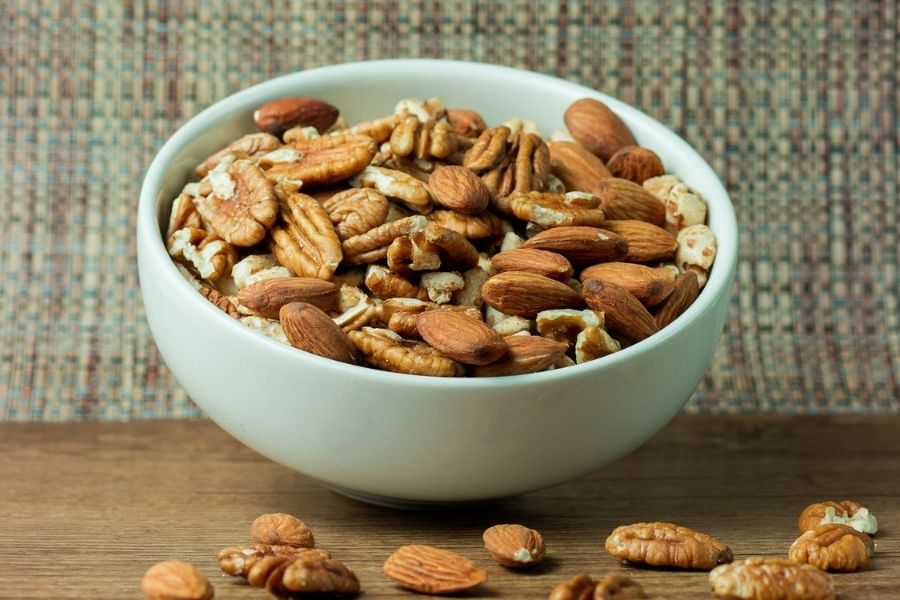
Garam Masala
Garam masala is a mix of ground spices like cinnamon, black pepper, black cardamom, nutmeg, cloves, star anise, etc., which have the ability to keep the body warm from inside. However, it should be used in a very small quantity, because it is very hot in nature and if consumed in high quantities, it can be harmful. In India, garam masala is used more in the cuisines belonging to the mountainous regions such as Kashmir, Himachal and Uttarakhand. It also has plenty of medicinal properties, which is why it is also used as Ayurvedic medicine. If used in a proper manner, these spices along with enhancing the food taste, also boost up the immunity.
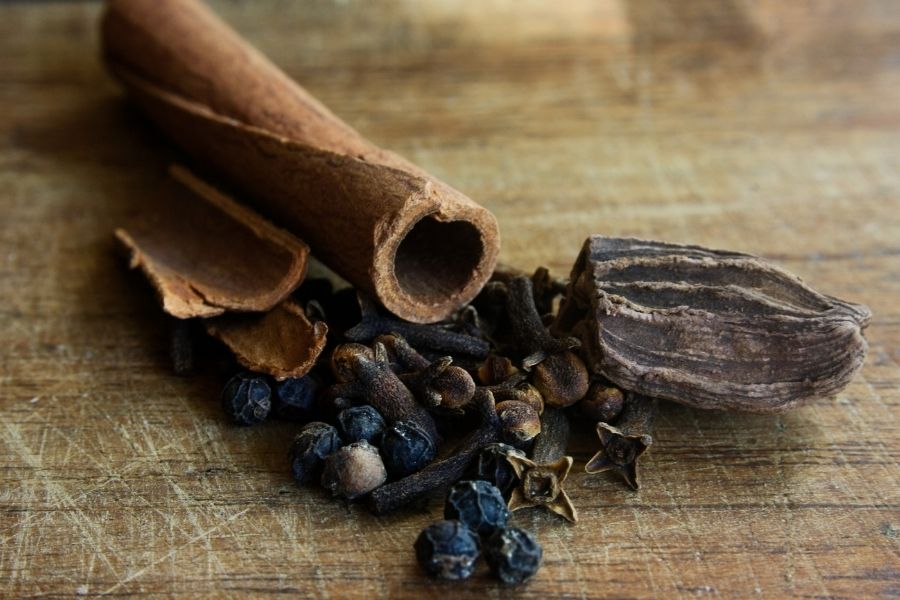
Saffron
Saffron is very warm in nature, that is why it is used in tiny quantities, especially in sweets and beverages. Drinking saffron milk at night in winters not only keeps the body warm but also benefits our health in many other ways.
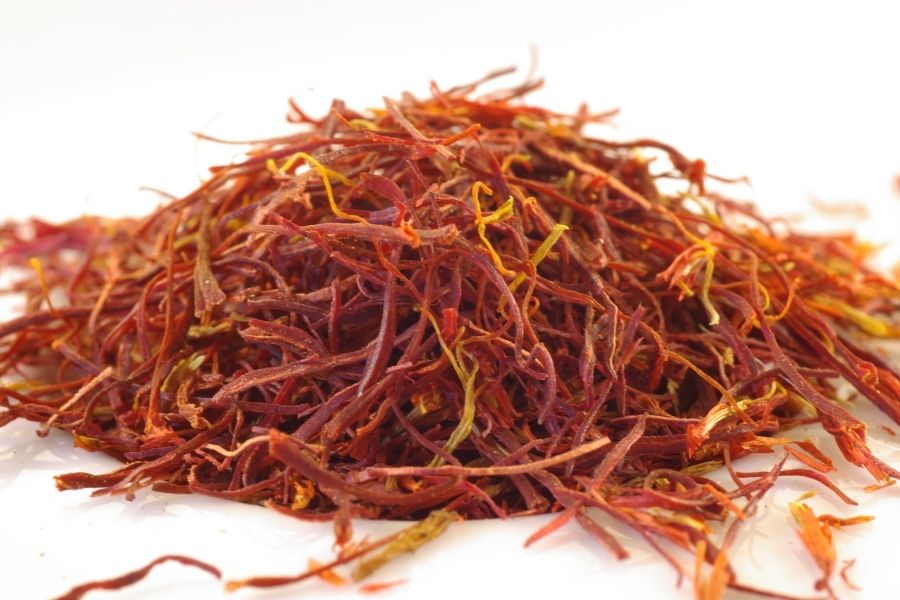
Also Read: 6 Amazing Herbal Teas For Better Health!



